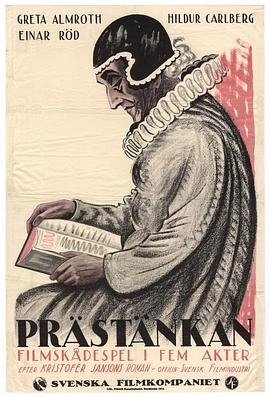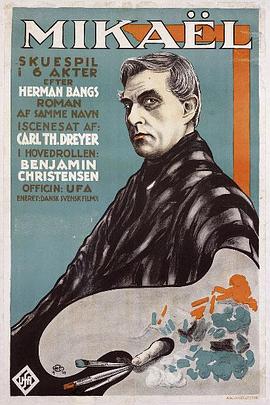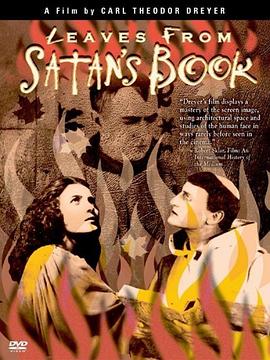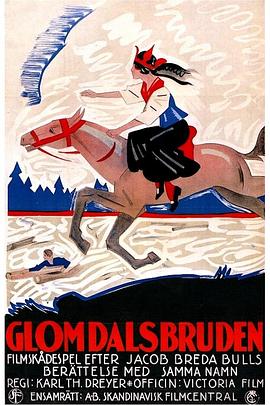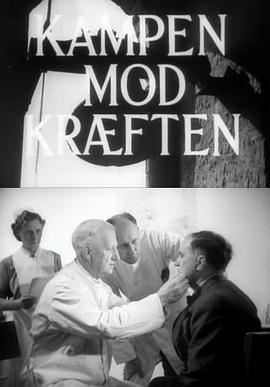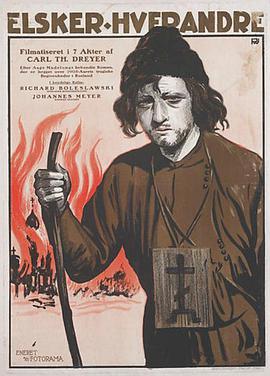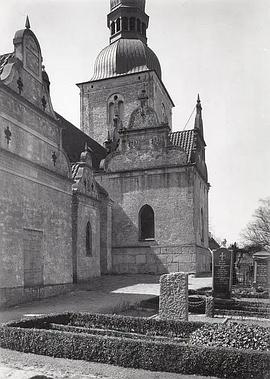『 复仇之日 』
“ 故事发生在1632年的丹麦,一个地处偏远的小镇中正在进行一场残酷的处刑,一个年老的女人因为被指控为巫女,而面临着被活活烧死的悲惨命运。临死前,愤怒的老人设下了诅...
| 演员 | Thorkild Roose / Lisbeth Movin / Preben Lerdorff Rye / Sigrid Neiiendam |
| 导演 | 卡尔·西奥多·德莱叶 |
| 地区 | 其它 |
| 语言 | 其它 |
| 类型 | 爱情片 |
| 豆瓣 | 8.3 |
| 年份 | 1943 |
| 更新 | 2023-05-03 |
相关影视推荐
玛格丽特夫人的第四次婚姻
Greta Almroth,Einar Röd,Hildur Carlberg,Olav Aukrust,Emil Helsengreen,玛蒂尔德·尼尔森,Lorentz Thyholt,Kurt Welin
卡尔·西奥多·德莱叶这部喜剧引出心灵流变的轨迹,并在喜剧形式表现中要求夸张的转折与表演方式。他的简单主义从《总统》的办公室开始到玛格丽特夫人的屋舍,更趋向朴质。而对容貌的描写这里也有了开端。影片中的骗徒,终究抵抗不了良心的责备以及虚假婚姻阻隔与女友之间的真情。但有趣的是,被骗的老妇却早已察觉他的不怀好意但又绝非恶徒。反而是外力最后促使内在的圆满。
一屋之主
约翰·梅尔,阿斯特里德·霍尔姆,卡琳·内勒莫瑟,玛蒂尔德·尼尔森,克拉拉·舍恩菲尔德,Johannes Nielsen,彼得里娜·松内,Aage Hoffman,Byril Harvig,维戈·林德斯特伦,奥格·施密特,Vilhelm Petersen
维克托是个大男子主义者,在他眼里,妻子艾达所做的一切都是理所应当的。有一天,艾达被辞退了,心中更加无比愤懑,维克托的老奶奶和朋友们于是决定演一出好戏,让维克托反思自己过去的行为。
麦克尔
沃尔特·斯勒扎克,马克斯·奥青格尔,诺拉·格雷戈尔
英俊青年麦克尔(Walter Slezak 饰)是画家苏莱特的专属模特,以麦克尔为原型,苏莱特创作出了精美的艺术作品,名声大噪,登门求画的人络绎不绝,但苏莱特为了保存和麦克尔的美好回忆拒绝出卖杰作。年轻貌美的女伯爵拜访苏莱特,请求后者为自己画像,麦克尔默默注视着女伯爵,四目交投之下,情意暗生,苏莱特思量之后决定为女伯爵作画,但创作不久因苏莱特无法描画女伯爵的眼睛而陷入停滞,麦克尔提笔代劳,女伯爵美丽的神色跃然画上……麦克尔与女伯爵相爱并逐渐离苏莱特而去,苏莱特承受着年青人的欺骗和背叛,将内心的悲苦呈现在画作上,受孤独煎熬的生命之火渐渐熄灭…… 本片根据赫曼·邦的同名小说改编,是电影史上最早涉及同性恋题材的作品之一。
撒旦日记
Helge Nissen,Halvard Hoff,Jacob Texiere,哈兰德·黑勒曼,Ebon Strandin,约翰·梅尔,Nalle Halden,Tenna Kraft,Viggo Wiehe,Emma Wiehe,Jeanne Tramcourt,Hugo Bruun,埃利特·皮奥,Emil Helsengreen,维戈·林德斯特伦
葛罗达的新娘
Einar Sissener,Tove Tellback,Stub Wiberg,Harald Stormoen,Alfhild Stormoen,Oscar Larsen,Einar Tveito,Rasmus Rasmussen,Sofie Reimers,Julie Lampe,Henny Skjønberg
圣女贞德蒙难记
玛利亚·法奥康涅蒂,安德烈·贝利,莫里斯·舒茨,安托南·阿尔托,米歇尔·西蒙,让·戴德,莱昂·拉里夫,阿尔芒·吕尔维尔,Eugene Silvain,Louis Ravet,Alexandre Mihalesco
影片聚焦法国民族女英雄圣女贞德(玛利亚·法奥康涅蒂 Maria Falconetti饰)生命的最后时刻,再现了她被出卖落入勃艮第叛军手中后,在英格兰监狱和法庭上,从受审到处死的全过程。被英格兰当局严密控制的天主教会,指控贞德为异端和女巫。法庭上,法官更伪造证据,以信仰问题不断对她施以精神上和肉体上的折磨。面对惨无人道的酷刑与子虚乌有的诬陷,贞德正气凛然、坚贞不屈。最后,贞德被押赴鲁昂市广场,被绑在火刑柱上活活烧死。 由一代电影大师卡尔·西奥多·德莱叶执导拍摄的影片《圣女贞德蒙难记》,被称为世界十大最佳影片之一。影片以极具震撼力的艺术表现手法,再现了这段受到天主教会和英国占领军折磨的民族英雄短暂生命中的最后时刻。
标号人
Adele Reuter-Eichberg,弗拉基米尔·盖达罗夫,Polina Piekowskaja
Russie, 1905. Lasse de l'atmosphère antisémite de son village natal, la jeune Hanne Segal part à Saint-Pétersbourg rejoindre son frère Jacob qui, converti au christianisme, est devenu un riche avocat. Elle y retrouve aussi son ancien ami Sacha, entré dans un groupe révolutionnaire...
丹麦小村教堂
Ib Koch-Olsen
The history of Danish country church architecture is told by showing scenes of how the church was used by the congregation, beginning with the celebration of mass in a small and simple wooden church 800 years ago, and ending with the congregation singing in a village church of to-day. The development and the growth of the pattern of church architecture is shown. Dreyer in this film shows a series of churches from different periods with churchgoers in period clothing. Each period is separated by a shot of a church bell double-exposed on the sky. Although the film has a vibrant and instructive way of communicating the different epochs and styles to students, it does not exhibit the artistic quality that usually distinguishes a Dreyer film, except perhaps in some of the costumes, which were originally made for Day of Wrath. The board of Dansk Kulturfilm in autumn 1945 decided that their planned church film would exclusively be about village churches. Dreyer would rework the script that was written by editor and folk high-school principal Bernhard Jensen, aided by a committee of experts consisting of architect H. Lønborg-Jensen and Victor Hermansen, curator at the National Museum of Denmark. Dreyer had a first draft ready in mid-March, entitled Kirken er et gammelt Hus ("The Church Is an Old House"), which was distributed to the members of the committee for their comments. In the last half of July, Dreyer and Victor Hermansen travelled the country to look at suitable churches. They researched the details and at Dreyer’s request a number of technical changes were made to the churches, including the removal of porcelain holders for electrical wiring in Tveje Merløse Church. On 4 July, Dreyer went in advance to Ringkøbing. Shooting was set to start a few days later with the arrival of the director of photography, Preben Frank, who had fallen off a ladder and broken his leg, Fortunately, he was ready to cautiously start working again within a few days, with his leg in a cast. Otherwise, the production went without a glitch. Everywhere, Dreyer said, they were well received at the vicarages and they had no problem getting enough extras. On 1 august, they returned to Copenhagen with almost all their footage in the can. They only needed to film the church in Skelby, where the weather had been against them, plus a Swedish wooden church in Hedared. The economy was distressed so soon after the war, especially when it came to foreign currency, but there were no real wooden churches left in Denmark and building an interior set in the studio would be too expensive. The finished film was shown for the first time on 24 September 1947 to a small, closed circle, which included the Minister for Ecclesiastical Affairs. In December 1947, as was Dansk Kulturfilm’s standard practice, the film was presented to the press, politicians and others on a programme with four other short films.
永别了傻瓜
哈威·凯特尔,热拉尔·德帕迪约,加布里埃尔·斯巴修,劳拉·莫兰特
二战期间,纳粹占领下的罗马尼亚村庄中德军士兵被杀,德军限令村人第二天交出凶手,否则将杀害村中十位头面人物。危急之际,众人想到让村里的疯子伊普冒名顶罪,一场混合着笑与泪的战争喜剧便由此开始……本片翻拍自1972年的罗马尼亚影片《伊普之死》,演员阵容豪华,除由法国影帝大鼻子情圣德帕迪约领衔外,更有老戏骨哈威·凯特尔(《落水狗》、《钢琴课》)及威尼斯影后劳拉·莫瑞特(《心之归属》)倾情助演。影片画面精致,结局最是出人意料。
永别了傻瓜2013
哈威·凯特尔,热拉尔·德帕迪约,加布里埃尔·斯巴修,劳拉·莫兰特
二战期间,纳粹占领下的罗马尼亚村庄中德军士兵被杀,德军限令村人第二天交出凶手,否则将杀害村中十位头面人物。危急之际,众人想到让村里的疯子伊普冒名顶罪,一场混合着笑与泪的战争喜剧便由此开始……本片翻拍自1972年的罗马尼亚影片《伊普之死》,演员阵容豪华,除由法国影帝大鼻子情圣德帕迪约领衔外,更有老戏骨哈威·凯特尔(《落水狗》、《钢琴课》)及威尼斯影后劳拉·莫瑞特(《心之归属》)倾情助演。影片画面精致,结局最是出人意料。
圣人文森特
比尔·默瑞,梅丽莎·麦卡西,娜奥米·沃茨,杰登·马泰尔,克里斯·奥多德,泰伦斯·霍华德,内森·科德里,金贝利·奎恩,斯科特·安第斯
玛姬(梅丽莎·麦卡西 Melissa McCarthy 饰)和儿子奥利弗(杰顿·李博赫 Jaeden Lieberher 饰)两人过着相依为命的生活,在巨大的生活压力之下,玛姬不得不在医院里加班加点的工作赚钱,自然也就无力照看年幼的奥利弗。 于是,玛姬将奥利弗托付给了邻居文森特(比尔·默瑞 Bill Murray 饰)——一位看上去风度翩翩的优雅老人。然而,真实的文森特脾气暴躁,酗酒如命,沉迷赌博,甚至和脱衣舞女达卡(娜奥米·沃茨 Naomi Watts 饰)一起带着奥利弗去夜总会鬼混。奥利弗目睹了文森特的种种“恶行”,却用一种孩童式的善意目光进行着解读,随着时间的推移,文森特和这个小男孩之间建立起了坚实的友谊。
